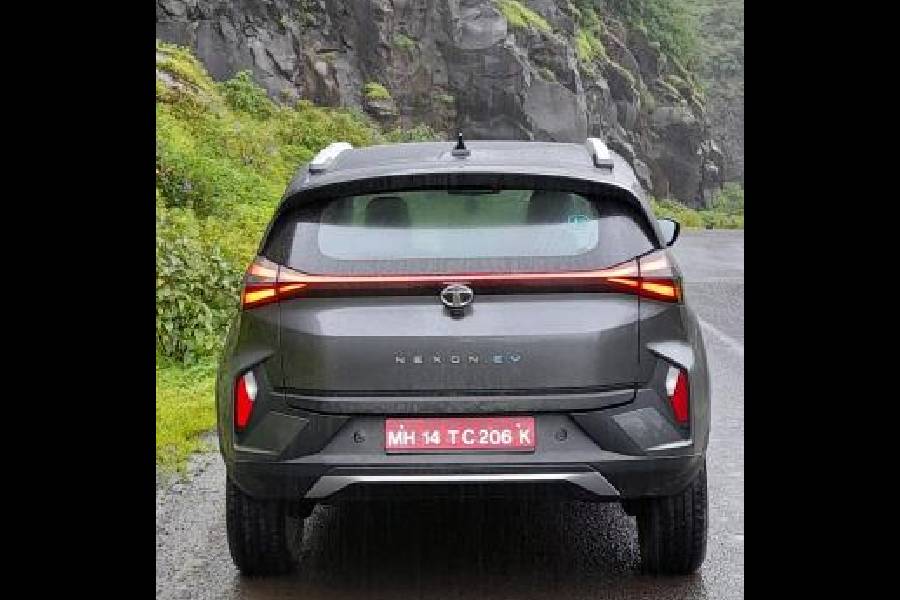The maxim ‘Don’t fix it if it ain’t broke’ doesn’t quite work in the world of new cars or SUVs. For, introduction of better vehicles by the competition makes even good ones dated. Which is why Tata Motors has given its Nexon.EV, which is currently India’s largest selling electric vehicle (EV) model, an upgrade that gives it the look and feel of a new SUV.
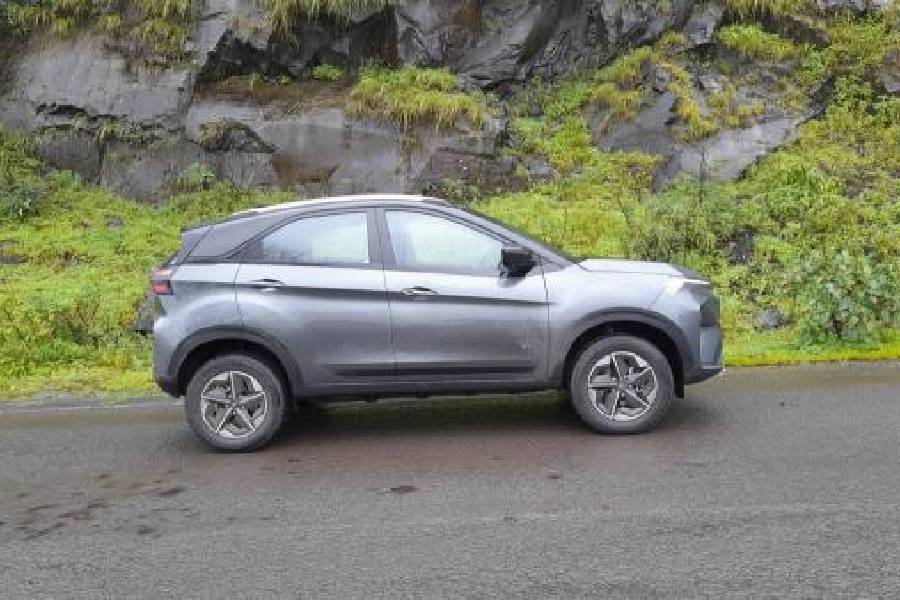
The profile is where most of the similarities are fairly obvious although some of the design cues have been modified to freshen up the look
THE EXTERIORS
This is where the changes are probably the most obvious. With LED headlamps being smaller, there was more real estate to play with in the front and it has been made smoother. Daytime running lights going across the breadth that emphasise width and the overall shape is now more edgy and square than it used to be.
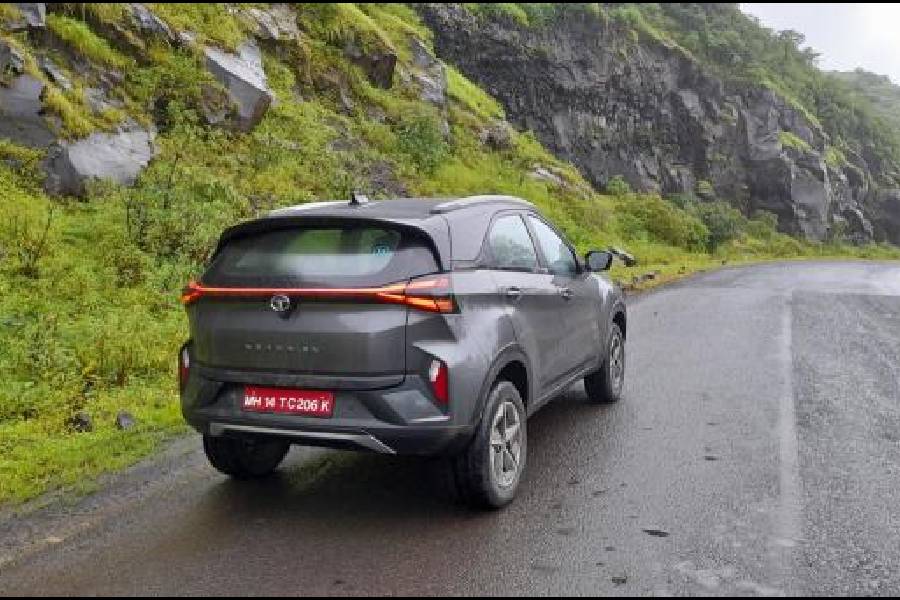
The design has now evolved the white wraparound beltline into a red LED signature that stays on as long as the car stays switched on
A new motif of parallel bars has been introduced in the front bumper that gets reflected in the signature of the DRLs and the alloy wheels and the tail lights as well. The white X line is gone now, but a strip at the back and the tail lamps recreate that with lights. The designers claim that small changes have been made to the vehicle that make more aerodynamic and, therefore, helps improve driving range.
THE INTERIORS
The passenger space has been given a fairly comprehensive makeover. The dash is where the biggest changes have happened. There is a layered design now and the top of the line Long Range version gets a 12.3-inch HD infotainment screen. Things look more minimalistic and cleaner now with a large number of controls having been moved to touchscreens and touch buttons and even the physical switches have been made to look quite inconspicuous.
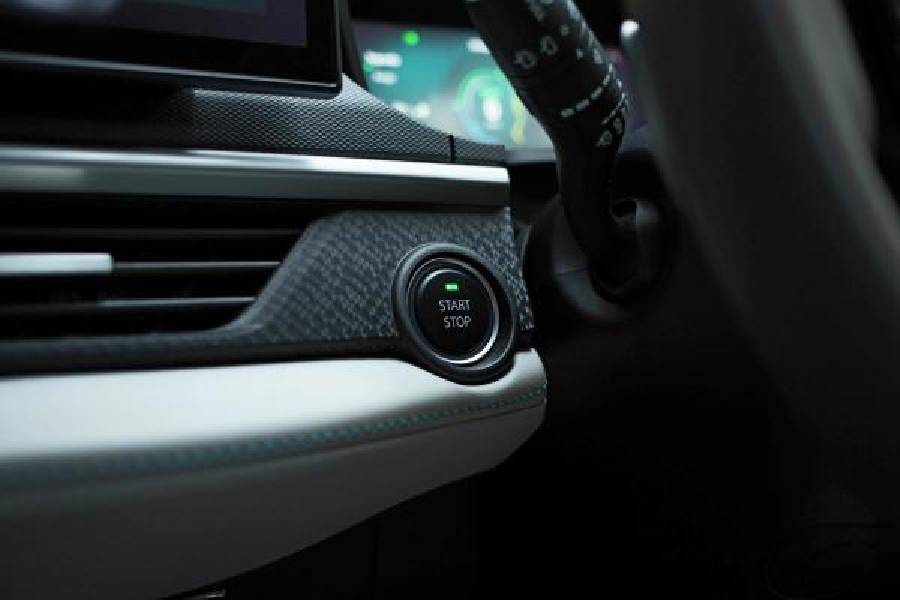
The dashboard is a mix of new colours and textures that, however, blend together quite nincely
The Nexon gets a new flat bottom two-spoke steering with an illuminated logo and backlit switches on a polished black boss. The instrument cluster, too is digital and offers quite a few options that includes use of the whole thing as a navigation map.
The front seats are cooled now and very well bolstered and comfortable. The rear seat remains largely the same but the space could have done with a couple of more charging ports given the number of electronic gadgets we tend to move around with these days.
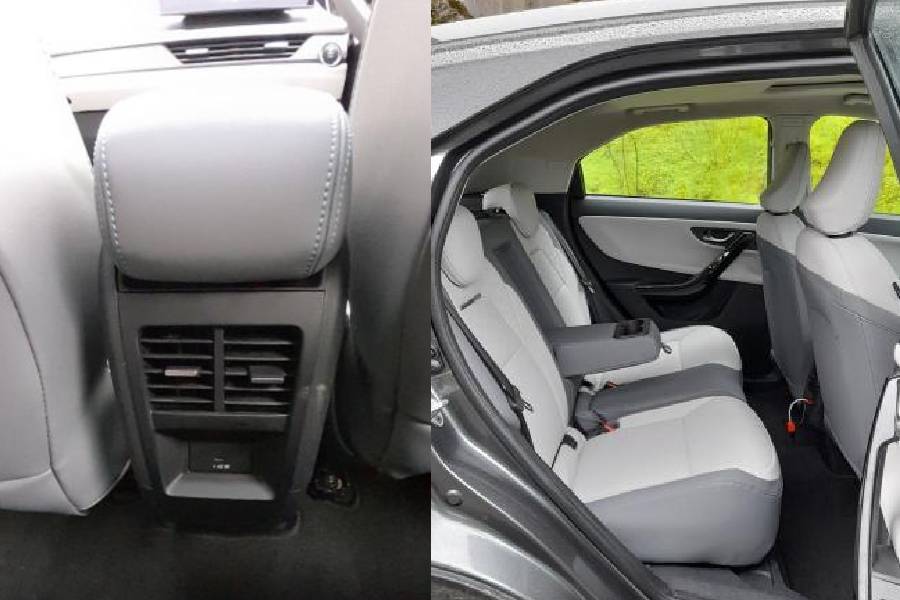
(l-r) There could have been a couple more charging points at the rear apart from the USB socket below the rear air conditioner vents, Even with the battery taking up a fair bit of space, the rear seats are comfortable and not compomised for headroom or legroom, although the roofline swoops down a bit towards the back
The light upholstery gave a feeling of airiness to the interiors.
UNDER THE SKIN
Some of the big changes have happened where we cannot ‘see’ them. The biggest is the vehicle-to-vehicle (V2V) and the vehicle-to-load (V2L) charging facilities. This is available in the top of the range model. Basically, it allows the Nexon’s battery to be used as a large power bank to charge another car or provide electricity to things like camping spaces, within limits of course.
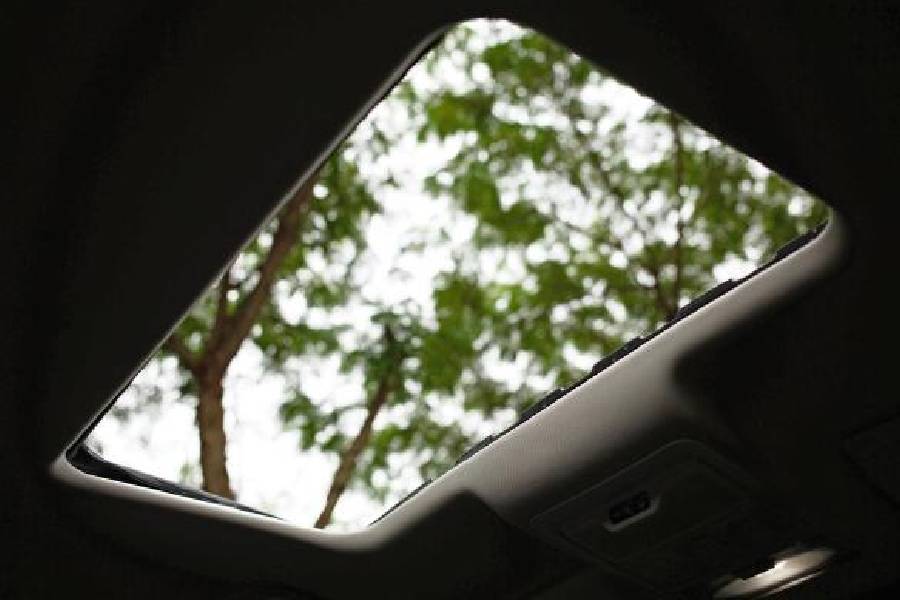
There is a sunroof, but it is not one of the panoramic numbers
Other than that, there are new apps like Arcade.ev and a host of others that let the Nexon have a comprehensive entertainment package. There is also a setting that lets rear seat passengers continue sleeping by directing the sound to the front. The Nexon is compatible with four types of voice assistance — Alexa, Siri, Google Assistant, Native voice assistance. It can also take more than 200 voice commands in six languages.
There are a host of other features. We just mentioned the ones we found more interesting.
ON THE ROAD
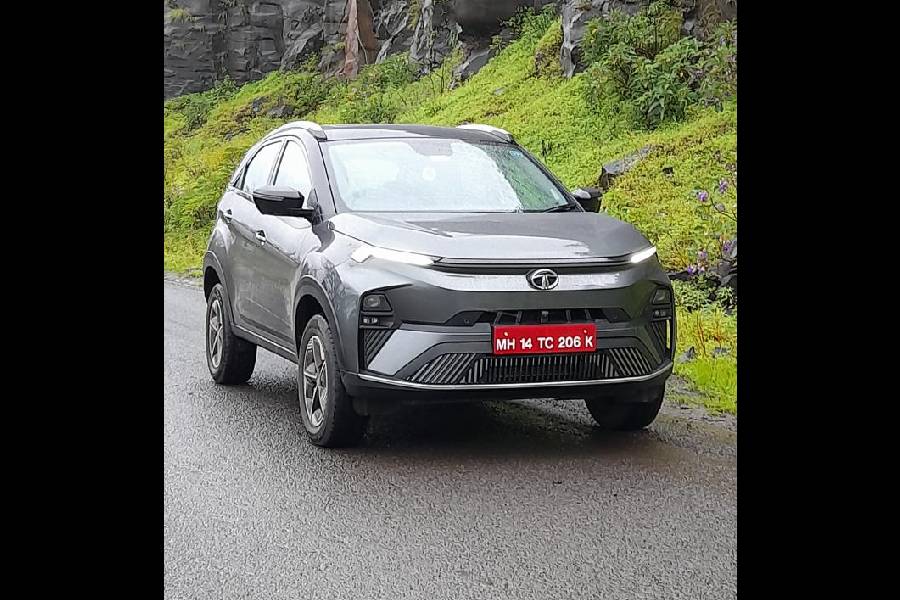
The Nexon.EV Long Range top of the line version that we drove has a top speed of 150kmph. The Medium Range version has a top speed of 120kmph. Ground clearance unladen is 190mm, and that was good enough for us to deal with good and bad tarmac. We did not take it off-road. With the battery placed low down, it handles very well indeed and the suspension takes the bad bits easily in its stride.
Even in the Eco mode, it is not difficult to drive, but to sharpen it up one could choose Sport or leave it the City mode. Range of the Long Range, going by the readout from the vehicle itself, is probably closer to 375-400 km than the 400-plus km under test conditions.
THE CALL
This electric SUV looks good, goes well, offers a fairly long list of features, and is priced sensibly. At almost Rs 15 lakh to Rs 20 lakh at the showroom, it’s not cheap. But it should be worth the money.

